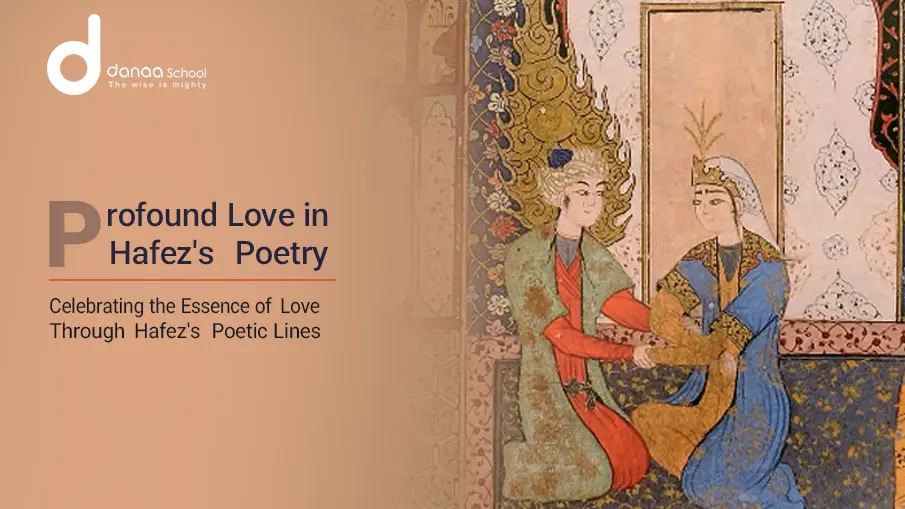Hafez of Shiraz is one of the most influential voices in Persian literature, admired for his ability to express profound ideas in remarkably few lines. Hafez short poems are especially beloved because they combine emotional depth, spiritual insight, and poetic elegance in a compact form. In this article, we explore the timeless wisdom found in Hafez’s short poems and why they continue to resonate with readers today.
Why Hafez Short Poems Are So Powerful
Unlike lengthy poetic narratives, Hafez short poems distill complex ideas into a handful of lines. Through symbolism, metaphor, and musical language, Hafez captures love, faith, doubt, and self-awareness with striking clarity. These poems invite reflection and interpretation, allowing each reader to find personal meaning within them.
Who Was Hafez of Shiraz?
Hafez, also known as Khwāja Shams-ud-Dīn Muḥammad Ḥāfeẓ-e Shīrāzī, lived in 14th-century Shiraz, Iran. His poetry is deeply influenced by mysticism and Sufi thought, yet it remains grounded in human emotion and everyday experience. This balance is what makes Hafez short poems feel both spiritual and relatable.
Selected Hafez Short Poems With Meaning
Hafez Short Poems on Love
I have no companion but love,
No beginning, no end, no dawn.
Meaning: Love is presented as eternal and boundless. Hafez suggests that true love exists beyond time and structure, shaping the soul without limits.
Hafez Short Poems on Inner Wisdom
Seek the treasure that does not perish,
Hidden within your own heart.
Meaning: This poem reminds us that lasting value comes from inner growth rather than external possessions—a recurring message in many Hafez short poems.
Hafez Short Poems on Faith and Renewal
From the depths of the sea of sorrow,
Faith rises again to the shore.
Meaning: Faith is not fixed; it can return even after doubt and hardship. Hafez uses nature as a metaphor for spiritual renewal.
Why Hafez Short Poems Still Matter Today
In a fast-paced world, readers often seek clarity and depth without excess. Hafez short poems offer exactly that—brief moments of insight that encourage mindfulness, emotional honesty, and spiritual reflection. Their universality allows them to speak across cultures and centuries.
Hafez Short Poems in Global Literature
The influence of Hafez extends far beyond Persian-speaking societies. Writers and philosophers such as Goethe and Emerson drew inspiration from his work. According to Encyclopaedia Britannica, Hafez is regarded as one of the greatest lyric poets in world literature, admired for both his artistic mastery and philosophical depth.
Learn More About Hafez Short Poems
If you wish to explore Hafez short poems more deeply—either in English translation or in the original Persian—structured learning can make a meaningful difference. Studying the language, symbolism, and historical context opens new layers of understanding.
At Danaa School, our Persian poetry courses guide learners through the works of Hafez with cultural, linguistic, and literary insight—making his poetry accessible and alive for modern readers.
FAQs About Hafez Short Poems
Why are Hafez short poems so popular?
Because they express deep meaning in very few lines, making them easy to remember and powerful to reflect on.
Are Hafez short poems spiritual or romantic?
They are often both. Hafez intentionally blends earthly love with divine symbolism.
Can beginners understand Hafez short poems?
Yes, especially in translation, though learning some cultural context greatly enriches the experience.
What makes Hafez's short poems significant?
Hafez’s short poems are significant because they encapsulate profound insights and emotions in just a few lines. These poems distill complex themes of love, spirituality, and human experience, making them accessible and impactful for readers seeking wisdom in brief yet meaningful expressions.
How do Hafez's short poems differ from his longer works?
While Hafez’s longer poems often explore elaborate themes through extended metaphors and narratives, his short poems are characterized by their concise and direct approach. These shorter verses focus on delivering powerful insights quickly and poignantly, often leaving a lasting impression with minimal words.
Can you give an example of a theme commonly found in Hafez's short poems?
A common theme in Hafez’s short poems is the exploration of love as an all-consuming, transformative force. For example, he often discusses love’s ability to transcend physical boundaries and time, suggesting that true love is both boundless and eternal.
What lessons can modern readers learn from Hafez's short poems?
Modern readers can learn about the importance of introspection, the value of spiritual and emotional richness, and the wisdom of living in the present moment. Hafez’s poetry encourages readers to look beyond material desires and to appreciate the deeper, more enduring treasures found within oneself and in genuine connections with others.
How has Hafez's poetry maintained its relevance across centuries?
Hafez’s poetry remains relevant across centuries due to its universal themes and emotional depth. His masterful use of language, combined with his exploration of timeless issues such as love, faith, and the human condition, resonates with diverse audiences, transcending cultural and temporal boundaries.
Conclusion
Hafez’s short poems offer a wealth of wisdom and insight within their compact form. Through themes of love, faith, and the fleeting nature of life, these verses continue to inspire and resonate with readers. Each poem is a testament to Hafez’s genius in conveying profound truths with brevity and beauty.
Inspired by Hafez’s evocative short poems? At Danaa School, we foster a deep appreciation for literature and the arts, helping students connect with timeless wisdom through engaging programs. Explore our courses to delve into the world of poetry, enhance your literary skills, and join a community of passionate learners.










